Romaan Basit, Final-Year Student, Jamia Ahmadiyya UK
Obedience to the Khalifa of the time is essential in Islam. Upon entering the pledge of allegiance (bai‘at), one willingly accepts to obey the Khalifa in all his decisions.
Since the Khalifa is divinely guided, the decisions he makes are also directly inspired by Allah the Almighty – the infinite source of wisdom (Al-Hakeem). At times, however, this wisdom may not be understood by laymen at the first instance. This is why we believers are expected to “hear and obey”.
This said, there are some people who, whilst remaining in the bai‘at, tend to criticise and critique decisions made by the Khalifa of the time.
So, where do we draw the line? Yes, Allah the Almighty has given us the freedom of conscience and expression, and Islam teaches us to think and ponder for ourselves. However, does this mean that if our own opinion differs from that of the Khalifa, we should call him out and question the decision? Can we really criticise a decision with our limited insight and intellect?
History has proven time and again that the decisions of not only Khulafa, but also Prophets, have been challenged in all ages; at times, even by their own people. Despite this, the sheer wisdom behind these decisions has always become manifest later on, proving such decisions to be ideal in the given circumstances and in the events that follow.
This article intends to take a look at such instances, beginning with a few examples from Islamic history, and then the period of the Ahmadiyya Khilafat.
The Treaty of Hudaibiyyah
The Treaty of Hudaibiyyah was a great turning point in the history of Islam. Through it, peace was finally established after years of warfare and Islam flourished more than ever. This said, many companions questioned the decision of the Holy Prophetsa initially as they could not see the wisdom behind it.
In the 6th year after migration (Hijra), the Holy Prophetsa had a dream where he saw himself and his Companionsra performing the tawaf of the Ka‘bah. He led his Companions to Mecca to fulfil this dream but were denied entry by the Meccans. This gave rise to a situation that needed to be resolved through diplomatic dialogue.

Although they did not allow the Muslims to enter and perform the tawaf that very year, negotiations led to an agreement between both parties as to how Muslims could gain access to the Ka‘bah. This agreement is what came to be known as the Treaty of Hudaibiyyah.
Every article of this treaty was drafted in a way that it appeared to be more in favour of the Meccans and virtually against the Muslims. Hazrat Mirza Bashir Ahmadra rightly suggests that “in almost every stipulation, the Holy Prophet forfeited his term and accepted the demand of the Quraish.” (The Life and Character of the Seal of Prophets, Vol. 3, p. 141)
For instance, the Muslims were not allowed to have “Bismillahir-Rahmanir-Rahim” (In the name of Allah, the Gracious, the Merciful) inscribed at the opening of the treaty, nor were they allowed to refer to the Holy Prophetsa as the Prophet of Allah, but only as Muhammad bin Abdullah. The Meccans made the Muslims change both to humiliate them. On top of this, they denied them entry to perform the tawaf until the following year. Other conditions were also drafted in a way where Muslims were given next to no advantage.
Despite all this, the Holy Prophetsa accepted every article of this treaty. The Companionsra found it very hard to digest the tone of the treaty. Their feelings and the subsequent reaction have been described by Hazrat Mirza Bashir Ahmadra as such:
“The companions were in a state of extreme shock, due to what seemed to be an apparently humiliating agreement […] their hearts had fainted in grief due to this apparent failure […] the feeling of grief and apparent disgrace had paralysed them.” (Ibid, Vol. 3, p. 143)
In fact, Hazrat Umarra even confronted the Holy Prophetsa, saying:
“Are you not the truthful messenger of Allah?”, “Are we not upon the truth and our enemy upon falsehood?”, “Why then should we bear this humiliation in the matter of our true religion?”
Upon seeing this state of Hazrat Umarra, the Holy Prophetsa responded:
“Look hither Umar! I am the Messenger of God. I understand the will of God and I cannot act against it and it is He who shall be my helper.”
In his love for the honour of Islam, Hazrat Umarra then went to Hazrat Abu Bakrra and asked the same, to which Hazrat Abu Bakrra replied:
“O Umar, control yourself. Do not allow for your grip to loosen from the rope of Allah’s Messenger. By God, this man in whose hand we have given our own is, without a doubt, truthful.” (Ibid, Vol. 3, p. 140)
History attests to the fact that this treaty proved to be extremely beneficial for the cause of Islam. At the time, the world was unaware of this; however, the Holy Prophetsa had received this special wisdom from Allah the Almighty. As a result, warfare was ceased, Islam spread rapidly and the Muslims finally attained victory over the oppressors.
Two things must be clarified here:
1. This demonstration of patience and perseverance by the Holy Prophetsa brought about immense prosperity for Islam.
2. Hazrat Umarra regretted all his life for having questioned the Holy Prophetsa, although he had done so only out of his love for the Holy Prophetsa and Islam. He would always mention that he gave alms and asked Allah’s forgiveness all his life so he could be forgiven for questioning the Holy Prophet.
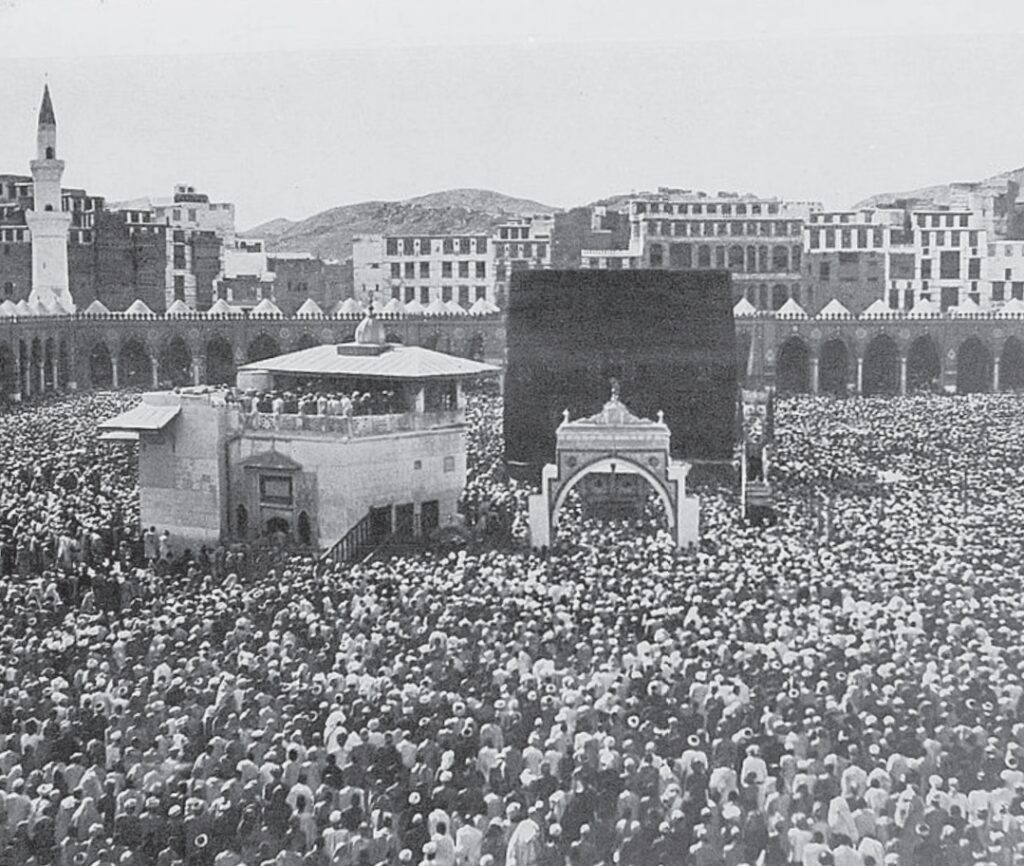
Hazrat Abu Bakrra and the expedition of Usama bin Zaid
At the very onset of his Khilafat, Hazrat Abu Bakrra was faced with a crucial decision to make: The Holy Prophetsa, in the last days of his life, had prepared an army to take on the Romans in Syria, with Hazrat Usama bin Zaidra as commander.
After the demise of the Holy Prophetsa, a wave of apostasy had swept the horizon and brought with it many challenges. In the face of this emerging situation, many companions were of the opinion that it may not be wise to send out this army. Hence, they advised Hazrat Abu Bakrra against doing so.
Hazrat Khalifatul Masih Vaa mentioned this incident in the following words:
“Prominent companions had suggested to Hazrat Abu Bakrra that due to the severity of the situation, he should delay sending off the army of Hazrat Usamara and that they should be sent some time later.
“Hazrat Abu Bakr refused, stating that even if beasts dragged his body around, he would still send this army in accordance with the instructions of the Holy Prophet […] Even if there remained with him not a single resident [of Medina], he would still carry out this decision.” (Al Hakam, 26 July 2019, Friday Sermon delivered on 28 June 2019, www.alhakam.org/hazrat-zaid-bin-harithah-r-a/)
History has it that some Companions insisted but failed to persuade Hazrat Abu Bakrra. He remained resolute in materialising an expedition that had been decided by the Holy Prophetsa himself.
The expedition did go ahead as decided by Hazrat Abu Bakrra and the results proved to be extremely beneficial for the Muslims against all odds.
Hazrat Khalifatul Masih Vaa mentioned this as follows:
“Sending the army of Usamara proved to be beneficial for the Muslims because the people of Arabia had begun to say that if the Muslims were weak and frail, they would never send this army on the expedition. Thus, through this, many of the disbelievers became alert and refrained from carrying out their plans against the Muslims.
“It was the firm resolve and tremendous courage of the Khalifa that he sent this army, despite several internal and external dangers as well as certain allegations.
“Then through the triumph and success, God Almighty taught the Muslims their first lesson that after the demise of the Holy Prophetsa, all blessings lie in the obedience to Khilafat.” (ibid)
Hazrat Umarra and the replacement of Hazrat Khalidra bin Walid
During the Khilafat of Hazrat Umarra, another similar incident took place. Hazrat Khalidra bin Walid had converted to Islam during the life of the Holy Prophetsa, and was renowned for being a remarkable warrior – the Holy Prophetsa would call him “saifullah” (the sword of Allah). He served as a commander of the Muslim army in the era of Hazrat Abu Bakrra and was undoubtedly very successful.
Despite his success, various reasons led to Hazrat Umarra removing him as the army general during his Khilafat, replacing him with Hazrat Abu Ubaidahra. This decision came as a shock for the companions, including Hazrat Abu Ubaidahra himself. Unable to grasp the wisdom, he showed reluctance in taking charge from such a great commander.
Hazrat Khalifatul Masih Vaa has explained this incident:
“The instruction of the Khalifa of the time […] was that Hazrat Abu Ubaidah should take charge. However, Hazrat Abu Ubaidah initially did not take the charge from Hazrat Khalidbin Walid thinking that he was already commanding in an excellent manner.” (Al Hakam, 21 June 2019, Friday Sermon delivered on 24 May 2019, www.alhakam.org/khilafat-and-obedience/)
Hazrat Khalidra bin Walid told him:
“You must immediately take the charge from me because that is the instruction of the Khalifa of the time. I will serve under you with full obedience as you require of me without complaining or any thought of an ill will”. (Ibid)
Hazrat Khalifatul Masih Vaa further explained:
“This is the standard of obedience required of a believer, and it should not be the case that if a decision is made against an individual’s wishes, they begin to object to it.” (Ibid)
This shows that even if a decision does not seem to make sense to us initially, or seems to go against our own wishes – it is never befitting to object as obedience remains paramount.
Hazrat Khalifatul Masih Ira and the question of Madrasa Ahmadiyya
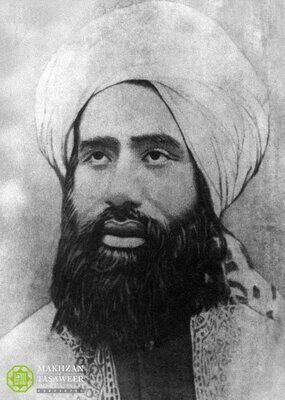
Coming now to Khilafat-e-Ahmadiyya, similar situations have happened in the past where a decision of the Khalifa remained beyond the understanding of some, but the wisdom behind it eventually became manifest.
At the onset of the time of Hazrat Khalifatul Masih Ira, he encountered a situation quite similar to that of Hazrat Abu Bakrra.
It had been the desire of the Promised Messiahas that an educational institute be established to prepare missionaries for the Jamaat. Although an informal setup had been in place since 1905, the Promised Messiahas had intended to establish a formal institute for this important task.
When Hazrat Hakim Maulvi Nuruddinra succeeded him as Khalifa, he decided that a grand madrasa (educational institute) be built in line with what the Promised Messiahas had planned. It was a project that was to incur heavy costs – purchase of land, building and all other paraphernalia.
Maulvi Muhammad Ali Sahib and his likeminded friends from the Anjuman (administrative council) had already been rallying that the funds of the Anjuman were not being utilised carefully. They had earlier criticised none else but the Promised Messiahas, in his lifetime, for spending unnecessarily on the guests that came to visit him.
Now when it came to the question of Madrasa Ahmadiyya, they started a campaign to condemn such a large expense for this purpose.
Having come to know this, Hazrat Khalifatul Masih Ira addressed the Jamaat and made it very clear that “if such a thought arises in anyone’s mind that these are very heavy expenses which the Jamaat will not be able to bear, then it is nothing other than a sign of weakness.” (Tarikh-e-Ahmadiyyat, Vol .3, p. 215)
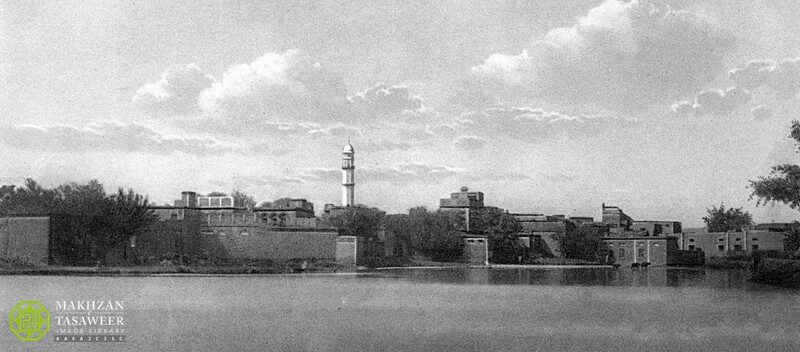
Despite this clear instruction of Huzoorra, the Sadr Anjuman held a meeting in Lahore without informing him and decided against this idea. This secret meeting was held on 15 November 1908, where it was decided that the Madrasa was an unnecessary expense. Those present in this meeting included Khwaja Kamaluddin Sahib, Maulvi Muhammad Ali Sahib, Dr Mirza Yaqub Baig Sahib and Syed Muhammad Hussain Shah Sahib – all of whom were to later oppose Khilafat-e-Ahmadiyya and break away from the mainstream Jamaat.
Deeming this meeting to be a success, they decided to present this idea to the rest of the Jamaat to turn the public opinion against the decision of Hazrat Khalifatul Masih Ira. A meeting was held in Masjid Mubarak on 26 December 1908 in which they announced the Sadr Anjuman’s decision.
When Hazrat Khalifatul Masih Ira came to know of this meeting, he went in to find Khwaja Kamaluddin Sahib giving a passionate speech, inciting the public against the Madrasa:
“Our Jamaat is intelligent enough to know that funds should not be wasted. There is absolutely no need to spend this much on a religious Madrasa […] hence [it] should be shut down, and the youth be sent to colleges for secular education.” (Ibid, Vol. 3, p. 229)
Hazrat Khalifatul Masih Ira immediately addressed those in attendance and reminded them of how Hazrat Abu Bakrra had faced a similar situation. He also reminded them how Hazrat Abu Bakrra had remained resolute and had met with success despite the initial opposition of many.
Having alluded to this incident of great historical importance, he reminded the Sadr Anjuman that they ought to be careful in their decisions and also to ponder over how future will remember them. Huzoorra reminded them that this Madrasa was founded by the Promised Messiahas who wanted to see it flourish into a full-fledged institute. Not letting this happen would be similar to objecting to Hazrat Usamara and his army being sent on the expedition. (Ibid, Vol. 3, p. 230)
Hazrat Khalifatul Masih Ira remained determined. The Madrasa was established and later developed into Jamia Ahmadiyya – the institute that was to produce thousands of missionaries for the propagation of Islam throughout the world and continues to do so to this day.
Now that Jamia Ahmadiyya is a global institution, it is self-evident that the decision of a Khalifa is always the best and always bears the fruits that a layman may not be able to imagine.
Hazrat Khalifatul Masih IIra and the question of Khilafat as succession
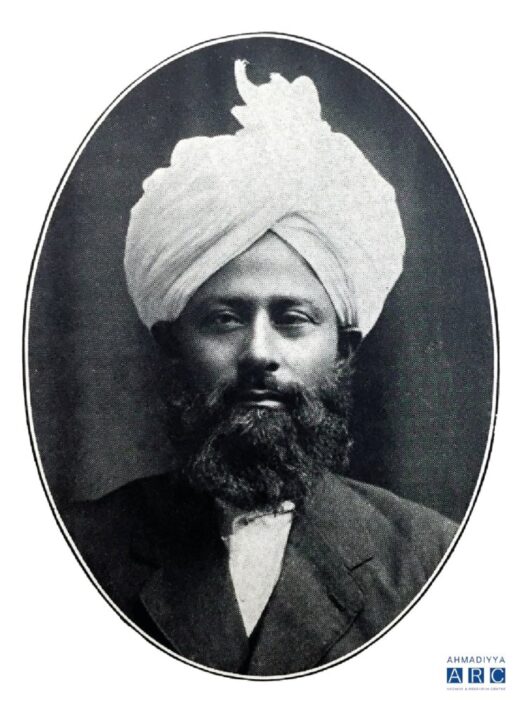
Upon the demise of the Promised Messiahas, a group opposed the institution of Khilafat and believed that it should not continue. Instead, they thought that Sadr Anjuman Ahmadiyya (the chief administrative council) should be in control of the affairs. They had not yet made their stance public and continued to conspire in secrecy throughout the period of the First Khilafat.
When Hazrat Khalifatul Masih Ira passed away, this anti-Khilafat group openly became active and started a vile propaganda against the system of Khilafat. They openly called Ahmadis to revolt against Khilafat and opt for the Anjuman to be the successor of the Promised Messiah.
As Hazrat Mirza Bashiruddin Mahmud Ahmadra had always remained in favour of Khilafat, he tried to convince Maulvi Muhammad Ali Sahib and Khwaja Kamaluddin Sahib – the spearheads of the anti-Khilafat movement – to understand that Khilafat was what the Promised Messiah saw as the future of the Jamaat’s leadership.
Hazrat Mirza Bashiruddin Mahmud Ahmadra was accused of being sure that he would be chosen Khalifa and that this was his main motive of him being so much in favour of Khilafat.
To this, he replied:
“I do not wish to be the Khalifa. I only favour Khilafat because it is the only way forward. Choose whosoever you like as the Khalifa and I will be the first to pledge allegiance at his hand.” (For further details, read The Truth About the Split)
However, the majority of the Jamaat understood Khilafat as the only solution and elected Hazrat Mirza Bashiruddin Mahmud Ahmadra as Khalifatul Masih II.
From then on, they continued openly opposing Khilafat and set up their own group. They detached themselves from the Jamaat and moved to Lahore, hence commonly known as the Lahoris.
It is important to note that prominent and influential scholars of the Jamaat at the time – the likes of Maulvi Muhammad Ali Sahib and Khwaja Kamaluddin Sahib – insisted that Khilafat should no longer continue; however, Hazrat Mirza Bashiruddin Mahmud Ahmadra did not waver from his stance, either before being elected or even after taking the office as Khalifatul Masih.
Huzoorra explained these events in his own words:
“A rift arose within the Jamaat. A group of people – who were regarded as the administrative setup of the Jamaat, who occupied Sadr Anjuman Ahmadiyya, who were responsible for the treasury, under whose influence were the influential figures of the Jamaat – began to say that there was no need for Khilafat.
“Eloquent speakers like Khawaja Kamaluddin Sahib, famous writers like Maulvi Muhammad Ali Sahib and famous businessmen like Sheikh Rahmatullah Sahib […] all gathered on one side and said that people wished to destroy the Jamaat by making a child a Khalifa.” (Mein hi Musleh-e-Maud ki Peshgoi ka Misdaaq Hoon, Anwar-ul-Ulum, Vol. 17, p. 204)
“The humble section of the Jamaat pledged allegiance to me and the so-called ‘prominent figures’ were separated from the Jamaat. One of them was Dr Mirza Yaqub Baig Sahib.
“As he left, he pointed to our buildings and said, ‘We are leaving because the Jamaat has not treated us well, but you will see that in ten years’ time, these places will be occupied by Christians and all these properties will be taken from the hands of Ahmadis.’” (Ibid, p. 206)
These words of Dr Mirza Yaqub Baig Sahib could not be further from the truth. We witness today how the Ahmadiyya Jamaat has, instead, spread to the corners of the earth under the magnificent leadership of Khilafat.
Hazrat Musleh-e-Maudra emphatically stated:
“Even if the whole world accepts me, the status of my Khilafat will not be affected, and if everyone abandons me (God forbid), even then there will be no impact on my Khilafat. Just as a prophet remains a prophet when he is alone, so is the khalifa a khalifa even if he is left alone. Therefore, blessed is he who accepts God’s decree.” (Ibid, p.209-210)
The progress of our Jamaat under Khilafat is clear for everyone to witness. The wisdom behind this divine institution was not recognised by the Lahoris at the time; however, this wisdom became manifest in due time. Not only did the Lahoris live to witness the success of Khilafat, we too are witnessing this.
Hazrat Khalifatul Masih IIra and his 1924 tour of London
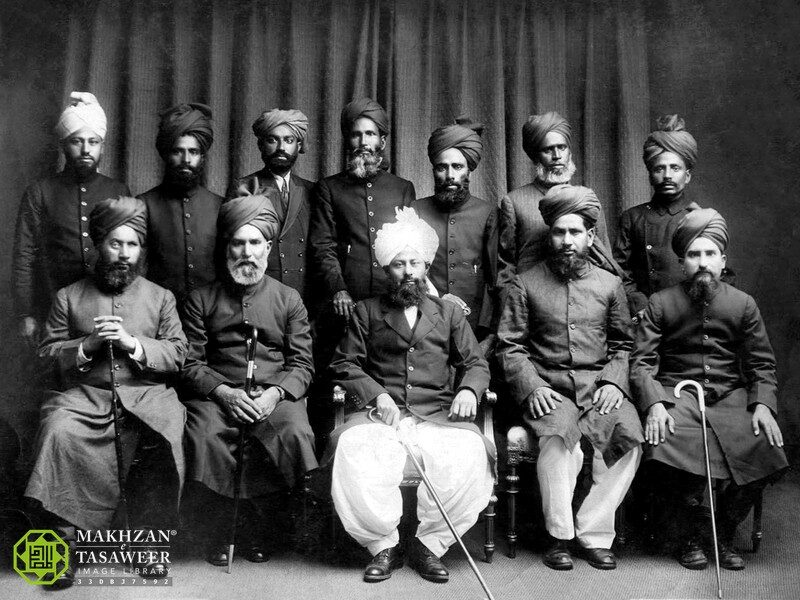
In 1924, Hazrat Khalifatul Masih IIra was invited to attend the Conference of Living Religions of the Empire in London. He was to read a paper on the Ahmadiyya Movement in Islam and its reformist outlook.
As this was to be the first overseas trip, Huzoorra called for a meeting to discuss whether he should undertake the journey or whether someone else ought to be sent as his representative. Hazrat Mirza Bashir Ahmadra and Hazrat Abdur Rahim Dardra suggested that this was a splendid opportunity to spread the message of Islam overseas, and that Huzoorra himself should be a part of the convoy. (Tarikh-e-Ahmadiyyat, Vol. 4, p. 423)
Most of the people present agreed to this; however, there was a group who deemed it better for Huzoorra not to travel and remain in Qadian instead. They had a myriad of reasons, among which was that it was premature for a Khalifa to undertake such a long journey to a distant land where the Jamaat was not established.
Huzoorra sought counsel from 112 local chapters of Jamaat India. While around a hundred were of the opinion that Huzoorra should himself travel to Europe, the rest deemed it not feasible in the given circumstances. (Daura-e-Europe, Anwar-ul-Ulum, v.8, p.379)
Hazrat Musleh-e-Maudra stated that he himself saw the financial situation of the Jamaat as unfavourable for such a costly travel. His health was another discouraging factor, as was the fact that two of his wives were due to give birth soon. But despite these unfavourable factors, he was guided by Allah the Almighty that he should travel and attend the conference. (Ibid, p. 380)
This incident is unique in the sense that Hazrat Musleh-e-Maudra expressed his own thought to be with those who had advised that he should not travel to London for the purpose of attending a conference. He said:
“I am not in favour of honouring the invitation to attend the conference and I agree with those who advise against taking up this journey”. (Ibid, p. 382)
However, he went on to explain why he had decided to embark upon this journey:
“One of the reasons why I deem it essential to travel is the Promised Messiah’s dream where he saw himself in London; hence, his successor should fulfil it.
“The other reason is that since the mission of our Jamaat is to propagate Islam throughout the world, it is essential the we devise a plan to materialise it […]
“Thus, it is absolutely necessary for the Khalifa of the time to travel to the West, acquaint himself with the culture, hold discussions with the people there and then come up with a plan for the propagation of Islam.” (Ibid, pp. 386-387)
As he made the decision to travel – against all odds – he also stated:
“We should pray that God Almighty, through this decision to travel to the conference, shows His choicest blessings in other ways also.” (Ibid, p. 385)
The difficult decision that Hazrat Musleh-e-Maudra had taken turned out to be full of blessings, just as he had asked of Allah the Almighty in the above prayer.
From the moment of his arrival in London, the press followed his every footstep and worked as a vehicle for the message of Ahmadiyyat to reach all over the United Kingdom. For a period of two months – the duration of his stay – there was hardly a day that newspapers did not carry news about the lectures that he would deliver to various societies of London and elsewhere in the country.
Then, right at the end of his stay in London, he laid the foundation stone of the Fazl Mosque – London’s first mosque – which was to serve (and continues to do so today) as the hub of Islamic activity for many decades to follow.
The mosque itself attracted such a great deal of media attention that it enabled the message of Islam Ahmadiyyat to reach not only the Englishmen but to inhabitants of other parts of the West as well.
Conclusion
The above examples, albeit only a handful, are strong proofs of the fact that Allah the Almighty guides the Khalifa of the time and blesses every decision he makes.
As an Ahmadi, we should place our trust in Allah the Almighty and also in the fact that He alone appoints the Khalifa. One way to place this trust in Allah is to obey every single word that we hear from the Khalifa with the firm belief that it can only result in good for us and the entire Muslim ummah.

